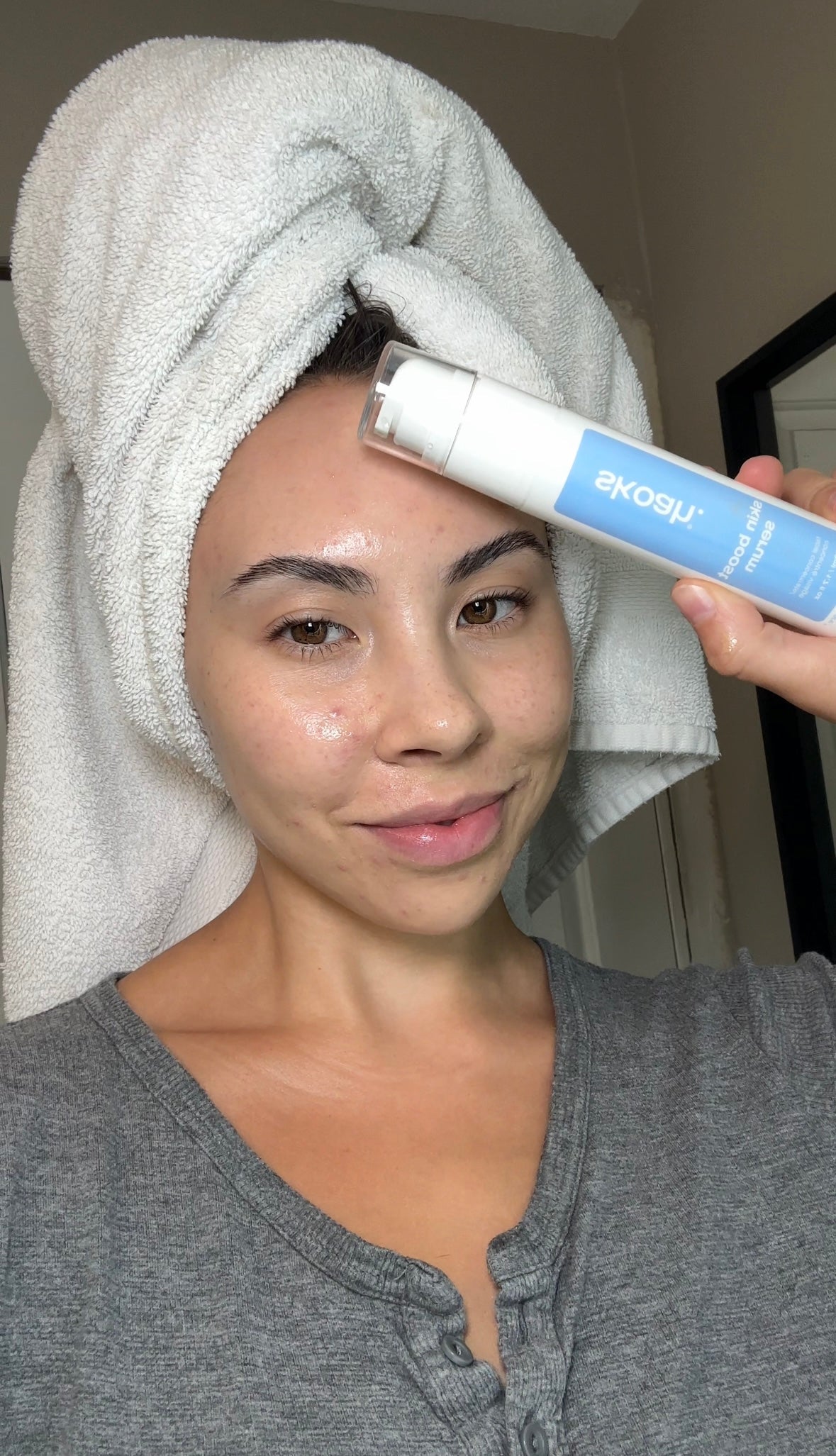Exfoliation is a crucial step in any skincare routine, helping to remove dead skin cells, unclog pores, and promote a smooth, radiant complexion. But not all exfoliators are created equal. The two main types—physical and chemical exfoliation—work differently and suit different skin types. Let’s break down their differences, benefits, and how to choose the right one for your skin.
Why Exfoliate?
Your skin naturally sheds dead cells, but sometimes they don’t slough off completely, leading to dullness, clogged pores, and breakouts. Regular exfoliation helps:
-
Promote a brighter, even skin tone
-
Improve skin texture
-
Prevent breakouts by unclogging pores
-
Boost product absorption for serums and moisturizers
Now, let’s explore the two exfoliation methods.
Physical vs. Chemical Exfoliation: What’s the Difference?
Physical Exfoliation
How it works: Physical exfoliators use small particles, brushes, or cleansing tools to manually buff away dead skin cells.
Best for:
-
Normal to oily skin
-
Areas with thicker skin (elbows, knees, feet)
Pros:
-
Provides instant smoothness
-
Removes buildup from the skin’s surface
Cons:
-
Can be too abrasive if overused
-
May cause micro-tears if using harsh scrubs
Recommended Skoah Products:
-
Face Skrub – A gentle, hydrating exfoliant with finely ground pumice
-
Skrubbin’ Face Wash – A dual-action cleanser and exfoliator for easy use

Chemical Exfoliation
How it works: Chemical exfoliants use acids or enzymes to dissolve dead skin cells, promoting cell turnover.
Best for:
-
Sensitive skin
-
Acne-prone skin
-
Dry or mature skin
Types of Chemical Exfoliants:
-
AHAs (Alpha-Hydroxy Acids) – Water-soluble acids that gently remove dead skin and improve hydration. Ideal for dry or sensitive skin.
-
BHAs (Beta-Hydroxy Acids) – Oil-soluble acids that penetrate deeper into pores, making them great for acne-prone and oily skin.
-
Enzymes – A gentler option derived from fruits like papaya or pineapple, perfect for very sensitive skin.
Pros:
-
No harsh scrubbing required
-
More even exfoliation
-
Helps with hyperpigmentation and fine lines
Cons:
-
May cause mild irritation if overused
-
Sun sensitivity (always wear SPF!)
Recommended Skoah Products:
-
AHA Mask – A gentle exfoliating mask infused with sea kelp and peppermint
-
Enzyme Mask – A soothing exfoliator with papaya enzymes for sensitive skin
-
Glow Tonik – A daily toner with AHAs to brighten and smooth skin
Which one is for you?
Although just about everyone can benefit from exfoliating, it is important to choose an exfoliator that is best for your skin type.

How to Choose the Right Exfoliator for Your Skin Type

Exfoliation Tips for Best Results
-
Limit exfoliation to 2-3 times per week (unless using a mild toner like Glow Tonik daily)
-
Always follow with a moisturizer to keep skin hydrated
-
Wear SPF daily, as exfoliation increases sun sensitivity
-
Avoid harsh scrubs that contain large or jagged particles
FAQ: Exfoliation Explained
Q: Can I use both physical and chemical exfoliation? A: Yes! Many people benefit from a combination approach. For example, using a chemical exfoliant like Glow Tonik daily and a gentle physical exfoliant like Face Skrub once a week can be effective.
Q: How often should I exfoliate? A: It depends on your skin type. Oily skin can handle more frequent exfoliation (3-4 times a week), while sensitive skin should stick to 1-2 times per week.
Q: Can I exfoliate if I have acne? A: Yes, but avoid physical exfoliation on active breakouts. BHAs (like salicylic acid) help clear clogged pores without spreading bacteria.
Q: Is exfoliation safe for sensitive skin? A: Yes, but opt for gentle options like enzyme-based exfoliants (Enzyme Mask) or mild AHAs.
Q: Should I exfoliate in the morning or at night? A: Nighttime is generally best, as your skin regenerates while you sleep. If using an exfoliating toner like Glow Tonik, apply it in the evening and always follow with SPF in the morning.
Exfoliation is a powerful way to achieve radiant, healthy skin. Whether you choose physical or chemical exfoliation—or a combination of both—understanding how they work will help you make the best choice for your skin type. Explore Skoah’s exfoliating products to find the perfect match for your routine.



